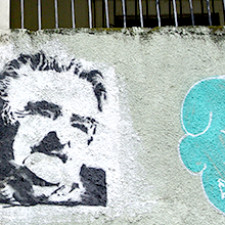How does metaphor coaching work?
Metaphor coaching is a powerful transformation tool, especially for people who are visually oriented. It is also used to gain insight into certain situations, actions, or ways of thinking. Usually, metaphor coaching is not a stand-alone coaching method.
Metaphor coaching uses metaphors. For example, someone compares themselves to an animal, an object, or an event and specifies why that metaphor applies. Someone who feels uncomfortable when speaking in front of a large audience can, for example, compare themselves in that situation with a small vulnerable foal.
This metaphor gives space, as it were, to investigate all aspects of the situation. Together with the coach, it can be examined whether it is bad to be on stage as a vulnerable foal, or whether a certain growth towards adulthood is needed first.
It may be that the person prefers to be on stage like a wild bull or a big elephant. By asking as a coach what transformation is needed for this, the person will gain insight into his potential and growth possibilities.
When to use coach metaphor coaching?
Metaphor coaching is extremely effective when it is difficult for a person to put into words what he or she is dealing with. This is often the case with people who are visually oriented. People who are more focused on speech, smell, touch, or sound may have more difficulty finding a good metaphor.
If someone has difficulty facing a certain event and is able to talk about it, but does not want to, metaphor coaching is also a solution. By talking about the metaphor, the trauma can be discussed without going into detail. This is because when using a metaphor the person only has to think about the concept of the event and not about the event itself.
What kind of metaphors are there?
Usually, a person prefers to use 1 type of metaphor, but metaphors can be found within 6 sub-areas.
- The human body and characters
- Flora, fauna and animals within a given environment
- Objects
- Individual or group activities
- Situations and environments
- Forces and physics such as the weather, the universe or spiritual sensations
How do metaphors give insight into how someone thinks?
Metaphors are powerful indicators of a person's way of thinking. A person who says that the strategy of his company should be defended strongly has a different style of thinking than someone who says that the strategy will have to stand the test of time.
Someone who says their relationship is on the verge of collapse has a different style of thinking than someone who sees their relationship shattered like a match.
Whatever metaphor a person uses, it gives a coach an indication of how a situation is viewed. By asking what exactly is meant by the metaphor, the coach gains insight into the person's 'explanation style'.
Often it is not the situation itself, but the way the person deals with it is the problem. By providing insight into this, the person is likely to be able to come up with new insights and solutions.
Clean Language Questions and Metaphors Coaching
In the 1980s, David Grove discovered that when he enquired about his client's metaphors using their exact words, they stayed in the metaphor; and after a time, their perception of their problems began to change.
This led him to create Clean Language, a method of asking simple questions of clients' metaphors which neither contaminate nor distort them.
When someone says "I keep running up against a wall in this company," we assume that the metaphor is a perfect description of their experience. Thus, what kind of wall it is, where it is, what happened just before they started running, and what happens next will all be symbolic of what it is like to have that person's experience — and these just happen to be four of the twelve basic Clean Language question set.
Twelve Basic Clean Language Questions
DEVELOPING QUESTIONS
And is there anything else about (that) [x] ?
And what kind of [x] (is that [x]) ?
And where/whereabouts is [x] ?
And that's [x] like what?
And is there a relationship between [x] and [y] ?
And when [x], what happens to [y] ?
MOVING TIME QUESTIONS
And what happens just before [event x] ?
And then what happens ? / And what happens next ?
And where could/does [x] come from ?
INTENTION QUESTIONS
And what would you/[x] like to have happen ?
And what needs to happen for [x] to [intention of x] ?
And can [x] [intention of x] ?
[x,y] = client's exact words
Although you can bring in other questions, it's amazing how much can be accomplished with just these twelve. We have run whole coaching sessions with only these questions. Clean Language questions are special because used together, they only ask the client to add to their understanding of themselves.
They do not reframe or make suggestions. Because of this, clean questions can be used in a remarkably wide range of circumstances — to solve problems, plan, create new ideas, and as a method for research and interviewing.
-
Ornela theCoachLife coach€ 0,41 pm
-
Liz de WitMindset coaching€ 0,42 pm
-
Mallory Balesspiritual life coach€ 0,94 pm
-
Wesley KelderHealth & Marketing€ 1,67 pm
-
Vivek SanagariPersonal Development€ 0,17 pm
-
Sabrina RossiBe Helpful for other€ 1,00 pm


































